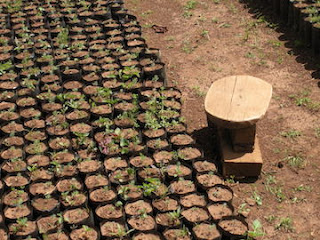Finally out the Proceedings of the Flora Trade between Egypt and Africa in antiquity seminar held in Naples (April 2015)
http://www.oxbowbooks.com/oxbow/flora-trade-between-egypt-and-africa-in-antiquity.html In recent decades, study of the ancient Egyptian natural world and its classification has adopted innovative approaches involving new technologies of analysis and a multidisciplinary general view. This collection of papers focuses on one particularly important aspect of foreign trade: the importation of aromatic products. Contributors present the results of the latest researches into the origin and meaning of foreign aromatic products imported in Egypt from the south (Nubia, Punt, Arabia, Horn of Africa) from the beginning of the Dynastic period. The quest for aromata has been of a crucial importance in Egypt, since it was closely connected with economic, political, ideological, religious and mythic spheres. Through archaeological research, epigraphic analysis and iconographic investigations new evidence is explored supporting the most likely hypothesis about the sources of these raw m...

